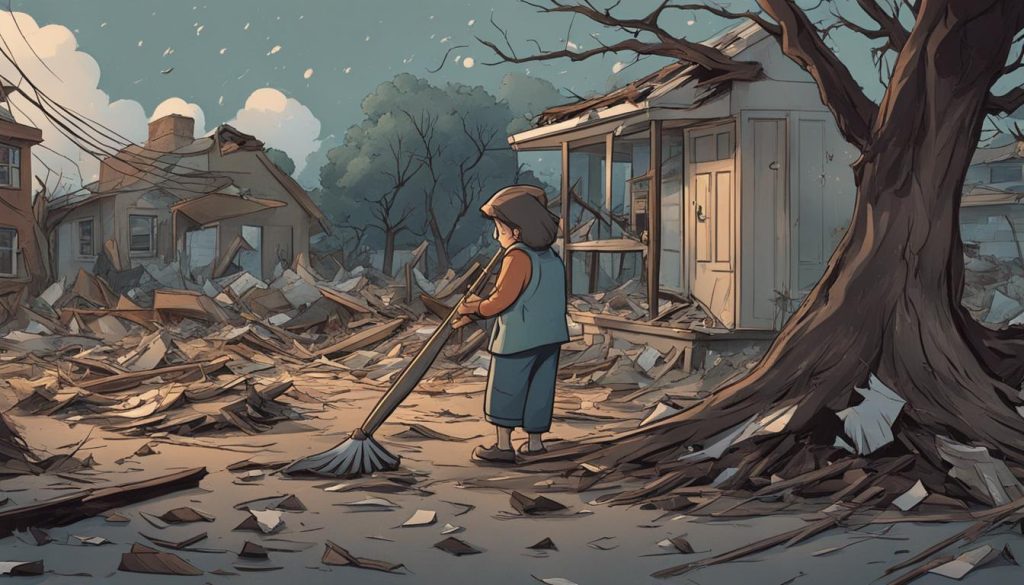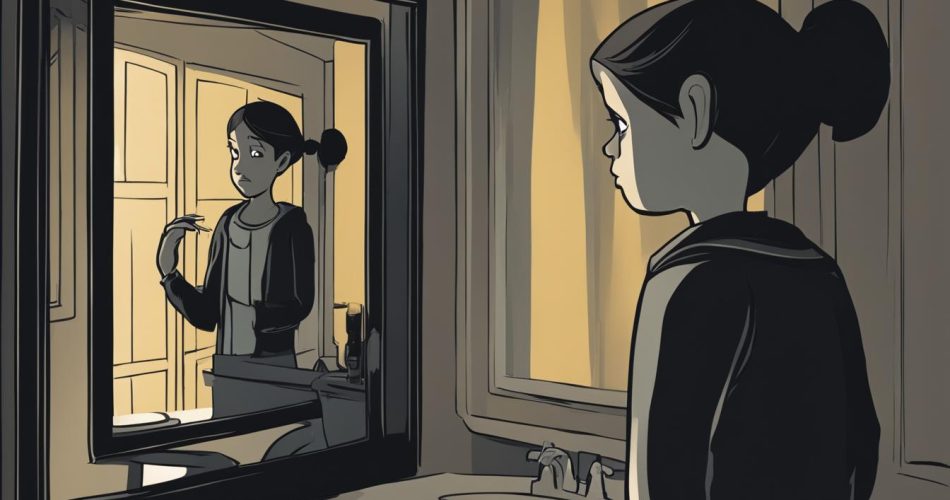In today’s fast-paced and interconnected world, building and maintaining healthy relationships is more important than ever. However, not all relationships are good for us. Toxic relationships can have a detrimental impact on our well-being, leaving us feeling drained, unhappy, and unfulfilled.
In order to protect ourselves and create healthier connections, it is crucial to be able to identify the signs of a toxic relationship. By recognizing these red flags, we can take steps towards healing and establishing relationships that are supportive, loving, and fulfilling.
In this article, I will guide you through the process of identifying toxic relationships, understanding their patterns and behaviors, and the impact they can have on our well-being. I will also provide strategies for healing from toxic relationships and seeking professional help and support. Together, we can navigate the complexities of toxic relationships and embark on a journey towards creating healthier connections.
Key Takeaways:
- Recognize the signs of a toxic relationship
- Differentiate between toxic and abusive relationships
- Understand the impact of toxic relationships on well-being
- Heal from toxic relationships through self-reflection, self-care, and setting boundaries
- Seek professional help and support when needed
Understanding Toxic Relationships
A toxic relationship is a dynamic that is characterized by unhealthy behaviors and causes distress or harm to those involved. Whether in a romantic, familial, or friendship context, toxic relationships can manifest through various signs and patterns of behavior. It is crucial to differentiate between toxic relationships and abusive relationships, as abuse represents an extreme form of toxicity that should never be tolerated.
In toxic relationships, individuals may experience feelings of insecurity, fear, or anxiety. Communication tends to be poor, leading to misunderstandings and unresolved conflicts. One or both parties may feel neglected, exploited, or taken for granted, resulting in a sense of powerlessness and resentment.
Individuals in toxic relationships may also lose their sense of self, as their needs and desires are overshadowed or dismissed by the other person. Constant judgment can leave individuals feeling belittled and ashamed, impacting their self-esteem.
Empathy, a crucial component of healthy relationships, is often absent in toxic dynamics. Instead, one or both parties may display a lack of understanding or concern for the other’s emotions or experiences, leading to a lack of emotional support and a feeling of isolation.
In toxic relationships, individuals frequently find themselves caught in dysfunctional roles. These roles can be manipulative, controlling, or enabling, perpetuating an unhealthy cycle of behavior.
Living in a constant state of anger or rage is another hallmark of toxic relationships. Negative emotions may overshadow positive experiences, leading to an emotionally draining environment.
Jealousy, often intense and consuming, is another characteristic of toxic relationships. This jealousy can be rooted in insecurities, mistrust, or an unhealthy need for control, further exacerbating the toxic dynamics.
Understanding the signs and behaviors associated with toxic relationships is essential for individuals to recognize when they are in such a situation. By identifying these patterns, individuals can take steps towards breaking free from toxicity and building healthier, more fulfilling relationships.
Signs of a Toxic Relationship
Recognizing the signs of a toxic relationship is crucial for protecting your well-being and creating healthier connections. Here are some red flags to watch out for:
- Emotional Unsafety: Feeling emotionally unsafe in a relationship is a clear sign of toxicity. This can include constant criticism, manipulation, or psychological abuse.
- Poor Communication: A lack of healthy communication, frequent misunderstandings, or a constant breakdown in communication can indicate a toxic dynamic.
- Feeling Neglected and Exploited: If you constantly feel ignored, neglected, or taken advantage of, it may indicate a toxic relationship where your needs and boundaries are not respected.
- Loss of Self: Toxic relationships can make you feel like you’ve lost yourself, compromising your values, interests, and goals to please the other person.
- Judgment Instead of Curiosity: Instead of being curious and understanding, toxic partners often judge and criticize your choices, leading to feelings of shame and unworthiness.
- Belittling and Ashaming: Constant belittlement, humiliation, or shaming from your partner can erode your self-esteem and indicate a toxic relationship.
- Lack of Empathy: Toxic partners often lack empathy and fail to understand or validate your emotions, leaving you feeling unheard and invalidated.
- Dysfunctional Roles: Toxic relationships often involve playing dysfunctional roles, such as the victim or the savior, which perpetuate unhealthy dynamics.
- Control and Manipulation: Feeling controlled, manipulated, or coerced in a relationship is a major warning sign of toxicity.
- Living in a Cloud of Rage: If your relationship is characterized by frequent outbursts of anger, hostility, or aggression, it may be a sign of a toxic environment.
- Intense Jealousy: Excessive jealousy and possessiveness can indicate a toxic and controlling relationship.
Identifying these signs can help you evaluate whether you are in a toxic relationship. Remember, recognizing toxic behaviors and patterns is the first step towards healing and finding healthier, more fulfilling relationships.
Differentiating Toxic Relationships from Abusive Relationships
Understanding the distinction between toxic relationships and abusive relationships is crucial for identifying the level of harm and seeking appropriate help. Although both types of relationships involve harmful behaviors, abusive relationships represent an extreme form of toxicity and should never be tolerated.
Abuse can manifest in physical, sexual, or emotional forms and is characterized by the dominance and control of one person over another. Physical abuse includes any form of violence or harm, while sexual abuse refers to non-consensual and coercive sexual activities. Emotional abuse involves manipulating, belittling, or demeaning the victim’s emotions and self-worth.
Toxic relationships, on the other hand, encompass a broader range of unhealthy dynamics and behaviors that can occur in various types of relationships, such as romantic, family, or friendships. These relationships may lack respect, healthy communication, and emotional support, leading to toxic patterns and negative outcomes.
To help differentiate between toxic and abusive relationships, it’s important to be aware of the signs and patterns associated with each:
- Power and Control: In an abusive relationship, one partner exerts power and control over the other through fear, intimidation, or physical violence. In a toxic relationship, power imbalances may exist, but they may not manifest in physical harm.
- Communication: Abusive relationships often involve manipulation, gaslighting, and threats as a way to control the victim. In toxic relationships, poor communication, constant criticism, and dismissive behaviors can make resolving conflicts difficult.
- Impact on Self-esteem: Abusive relationships can erode the victim’s self-esteem through constant belittling, insults, and humiliation. Toxic relationships may also affect self-esteem, but the impact may be less severe.
- Red Flags: Abusive relationships tend to exhibit clear warning signs, such as escalating violence, threats, and controlling behaviors. Toxic relationships may show signs of toxicity like emotional manipulation, passive-aggressive behavior, and boundary violations.
It’s important to remember that no form of abuse should be tolerated, and seeking help in abusive situations is crucial for personal safety and well-being. If you or someone you know is in an abusive relationship, reach out to a trusted friend, family member, or a helpline to get the necessary support to escape the abuse.
By recognizing the signs and patterns associated with toxic and abusive relationships, individuals can protect themselves and others from further harm. It’s essential to prioritize personal safety, well-being, and seek professional help when needed.
Impact of Toxic Relationships on Well-being

Toxic relationships can have a significant impact on one’s overall well-being. The negative effects of toxic relationships can manifest in various aspects of our lives, including our mental health, physical health, and emotional well-being.
Mental Health
One of the most notable impacts of toxic relationships is on our mental health. Constant exposure to toxic dynamics, such as manipulation, criticism, and emotional abuse, can lead to increased stress, anxiety, and depression. The constant negativity and toxicity in the relationship can undermine our self-esteem and sense of self-worth.
Physical Health
Research has shown that toxic relationships can also influence our physical health. The stress and emotional turmoil caused by toxic dynamics can lead to sleep disturbances, headaches, and other physical symptoms. The constant state of tension and anxiety in toxic relationships can weaken our immune system and make us more susceptible to illnesses.
Emotional Well-being
Toxic relationships can take a toll on our emotional well-being, leaving us feeling drained, unhappy, and unfulfilled. The constant negativity, manipulation, and lack of support can erode our happiness and sense of fulfillment. Toxic relationships can make it difficult to maintain a healthy sense of self and can leave us questioning our own worth and value.
Recognizing the negative effects of toxic relationships is the first step towards healing and prioritizing our well-being. It is important to seek help and support to navigate the process of healing and create healthier connections in our lives.
“The impact of toxic relationships on our well-being cannot be underestimated. It is crucial to recognize the signs and take steps towards healing and creating healthier connections.”
The Impact of Toxic Relationships on Well-being:
| Aspect | Effects |
|---|---|
| Mental Health | Increased stress, anxiety, and depression |
| Physical Health | Sleep disturbances, headaches, weakened immune system |
| Emotional Well-being | Feeling drained, unhappy, and unfulfilled |
Healing from Toxic Relationships
Healing from toxic relationships is a journey that requires self-reflection, self-care, and the establishment of healthy boundaries. It’s crucial to acknowledge and process the emotions and experiences associated with the toxic relationship in order to move forward.
One effective way to process these emotions is through therapy. Speaking with a professional can provide valuable insights, guidance, and coping strategies. Online therapy is a convenient option for those who prefer remote sessions, allowing individuals to access support from the comfort of their own homes.
Journaling is another helpful tool in the healing process. By expressing your thoughts and feelings on paper, you can gain clarity, identify patterns, and find solace. Additionally, talking to supportive friends or family members who understand your situation can offer a sense of validation and comfort.
During the healing process, prioritizing self-care is essential. Engaging in activities that bring you joy and fulfillment can foster a sense of well-being and help restore your emotional equilibrium. Self-care can take various forms, such as spending time in nature, practicing mindfulness, or indulging in hobbies.
Setting boundaries is crucial in preventing future toxic relationships and establishing healthier connections. By clearly communicating your needs and limits, you empower yourself to prioritize your well-being and attract positive, respectful relationships.
Healing from a toxic relationship takes time and effort, but it is possible to move on and find healthier, more fulfilling relationships. Remember to be patient with yourself and seek the support and resources that can aid you in your healing journey.
| Healing from Toxic Relationships | Moving On from Toxic Relationships | Recovering from Toxic Relationships | Rebuilding After Toxic Relationships | Finding Healthy Relationships |
|---|---|---|---|---|
| Self-reflection | Self-care | Therapy | Journaling | Supportive friends and family |
| Setting boundaries | Patience | Time | Self-care activities | Mindfulness |
| Nature | Hobbies |
Seeking Professional Help and Support

When healing from toxic relationships, seeking professional help and support can be immensely beneficial. Therapy provides a safe and confidential space where you can process your emotions, gain valuable insights, and develop effective coping strategies.
“Therapy provides a safe and confidential space where you can process your emotions, gain valuable insights, and develop effective coping strategies.”
If you prefer remote sessions or have limited access to in-person therapy, online therapy is a convenient option. With online therapy, you can receive professional support from the comfort and privacy of your own home. It offers flexibility in scheduling and removes potential barriers such as transportation or location.
“With online therapy, you can receive professional support from the comfort and privacy of your own home. It offers flexibility in scheduling and removes potential barriers such as transportation or location.”
Support groups can also play a crucial role in the healing process. They provide an opportunity to connect with others who have experienced similar situations and can offer empathy, understanding, and validation. Being part of a support group can help you feel less alone and provide a sense of belonging.
“Support groups provide an opportunity to connect with others who have experienced similar situations and can offer empathy, understanding, and validation. Being part of a support group can help you feel less alone and provide a sense of belonging.”
Seeking help and support is essential when dealing with the aftermath of a toxic relationship. It can aid in the healing process, offer guidance, and provide validation. Remember, you don’t have to navigate this journey alone; there are professionals and support networks ready to assist you on your path to healing and creating healthier relationships.
Benefits of Seeking Professional Help and Support
| Therapy | Online Therapy | Support Groups |
|---|---|---|
| Provides a safe and confidential space for processing emotions | Convenient, accessible from anywhere with internet connection | Offers empathy, understanding, and validation |
| Allows for gaining insights and developing coping strategies | Flexible scheduling without transportation or location barriers | Allows connection with others who have experienced similar situations |
| Professional guidance during the healing process | Privacy and comfort of your own home | Fosters a sense of belonging and reduces feelings of isolation |
Conclusion
Toxic relationships can be incredibly damaging to our well-being, but we have the power to heal, grow, and create healthier connections. By identifying the signs of toxic relationships, we can gain the awareness necessary to break free from harmful patterns. It’s important to differentiate between toxic relationships and abusive relationships, understanding that abuse is never acceptable or tolerable.
Once we recognize the toxic dynamics, we can take steps to prioritize our own well-being and move towards healing. This involves self-reflection, self-care, and setting boundaries. By seeking professional help and support, such as therapy or joining support groups, we can gain valuable insight, guidance, and validation on our journey to healing.
Healing from a toxic relationship takes time and effort, but it is possible to move on and create healthier, more fulfilling relationships. Through self-reflection, building self-worth, and surrounding ourselves with supportive and loving individuals, we can break free from toxic patterns and grow into a life filled with love, respect, and mutual growth.
FAQ
What are the signs of a toxic relationship?
Some signs of a toxic relationship include not feeling safe, poor communication, feeling neglected or exploited, losing oneself, constant judgment, feeling belittled and ashamed, lack of empathy, playing dysfunctional roles, feeling controlled or manipulated, living in a cloud of rage, and experiencing intense jealousy.
How can I differentiate between a toxic relationship and an abusive relationship?
While both toxic and abusive relationships involve harmful behaviors, abuse is an extreme form of toxicity that should never be tolerated. Abuse can manifest in physical, sexual, or emotional forms. It is important to seek help if you or someone you know is trapped in an abusive relationship.
What is the impact of toxic relationships on well-being?
Toxic relationships can have a significant impact on mental health, leading to increased stress, anxiety, and depression. They can also impact physical health, resulting in sleep disturbances, headaches, and other physical symptoms. Emotionally, individuals may feel drained, unhappy, and unfulfilled in toxic relationships.
How can I heal from a toxic relationship?
Healing from a toxic relationship involves self-reflection, self-care, and setting boundaries. It is important to acknowledge and process emotions, prioritize self-care, and engage in activities that bring joy and fulfillment. Setting boundaries helps protect oneself from future toxic relationships and establish healthier connections.
Should I seek professional help and support for healing from a toxic relationship?
Seeking professional help and support, such as therapy or support groups, can be beneficial when healing from toxic relationships. Therapy provides a safe space to process emotions, gain insights, and develop coping strategies. Support groups allow individuals to connect with others who have experienced similar situations.
Can I recover from a toxic relationship and find healthier connections?
Yes, it is possible to heal, move on from toxic relationships, and create healthier connections. It takes time, self-reflection, self-care, and setting boundaries. With efforts and support, it is possible to break free from toxic patterns and build healthier, more fulfilling relationships.

